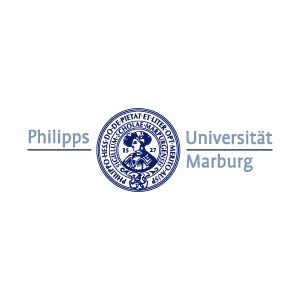PARTNERS
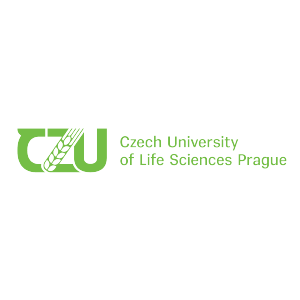 Czech University of Life Sciences Prague (CZU) is the third largest public university in Prague, focused on agriculture, forestry, environment, engineering, economy, management, and business. CZU provides complete higher education to over 18 000 people. In scientific performance, CZU is one of the fastest growing universities in the Czech Republic, cooperating with a number of private and public organizations and research institutions, both at the local and international levels. The University is a member of EuroLeague for Life Sciences (ELLS), a prestigious network of universities, and a member of the European Forest Institute (EFI); in 2021, CZU was the organizer of the EFI annual conference.
Czech University of Life Sciences Prague (CZU) is the third largest public university in Prague, focused on agriculture, forestry, environment, engineering, economy, management, and business. CZU provides complete higher education to over 18 000 people. In scientific performance, CZU is one of the fastest growing universities in the Czech Republic, cooperating with a number of private and public organizations and research institutions, both at the local and international levels. The University is a member of EuroLeague for Life Sciences (ELLS), a prestigious network of universities, and a member of the European Forest Institute (EFI); in 2021, CZU was the organizer of the EFI annual conference.
Role in the project: Project coordination, WP4, WP7, WP8 and Task 4.2, 4.5, 7.1, 7.3, 7.5-7.7 lead
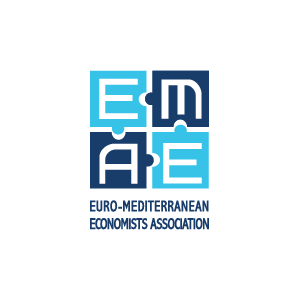 EMEA is an independent research institution and forum of debate that provides innovative, forward-looking thinking and political, socio-economic and financial integrated analyses on Europe, the Mediterranean and Africa in an emerging multipolar world. As a “think and act tank”, it strives to contribute decisively to the transition process in the Mediterranean and Africa amidst climatic challenges, unprecedented global financial and economic crises and geopolitical uncertainties and conflicts.
EMEA is an independent research institution and forum of debate that provides innovative, forward-looking thinking and political, socio-economic and financial integrated analyses on Europe, the Mediterranean and Africa in an emerging multipolar world. As a “think and act tank”, it strives to contribute decisively to the transition process in the Mediterranean and Africa amidst climatic challenges, unprecedented global financial and economic crises and geopolitical uncertainties and conflicts.
The financial model developed by EMEA in this project will integrate the value of AF in terms of its sustainability, biodiversity and socioeconomic benefits to harness potential funding streams linked to impact finance or agriculture and conservation support policies.
Role in the project: WP5 and Task 1.1, 1.2, 1.3, 1.4 lead
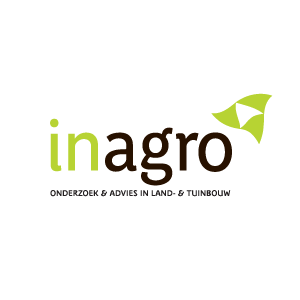 Inagro, a non-profit external spin-off agency of the province of West Flanders (Belgium), is a research and advisory institute for agriculture and horticulture. The core business of Inagro is the delivery of scientifically substantiated practical research and the transfer of knowledge to the stakeholders. Inagro transfers and disseminates knowledge through scientific and more vulgarizing publications, the weekly Inagro newsletter, open field days, demonstration days, platforms, workshops, symposia and events. Fast, direct and easily accessible communication with growers and stakeholders is a key mission of Inagro. The Inagro research facility has 16 hectares of fields for field trials in conventional farming and 12 hectares for field trials in organic farming. Inagro has a long-term partnership with a wide network of local farmers, whose fields are also used for trials. Taking a role in the ecosystem service analyses, Inago will follow up precision farming techniques to monitor crop health, soil and water parameters on ist own long term Agroforestry field trial.
Inagro, a non-profit external spin-off agency of the province of West Flanders (Belgium), is a research and advisory institute for agriculture and horticulture. The core business of Inagro is the delivery of scientifically substantiated practical research and the transfer of knowledge to the stakeholders. Inagro transfers and disseminates knowledge through scientific and more vulgarizing publications, the weekly Inagro newsletter, open field days, demonstration days, platforms, workshops, symposia and events. Fast, direct and easily accessible communication with growers and stakeholders is a key mission of Inagro. The Inagro research facility has 16 hectares of fields for field trials in conventional farming and 12 hectares for field trials in organic farming. Inagro has a long-term partnership with a wide network of local farmers, whose fields are also used for trials. Taking a role in the ecosystem service analyses, Inago will follow up precision farming techniques to monitor crop health, soil and water parameters on ist own long term Agroforestry field trial.
Role in the project: Involved in T.3.1, 3.2, 6.4, and participation in co-creation workshops, interviews and consulations with farmers, experts and stakeholders.
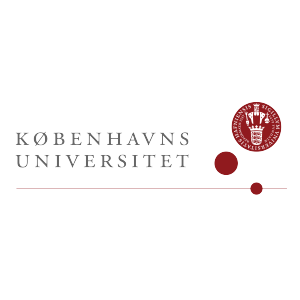 The University of Copenhagen is the highest-ranking university in Denmark and the Nordic region, the 6th best University in Europe (CWTS Leiden Ranking (2022) and 37th in the world. The project will be carried out at the Department of Plant and Environmental Sciences (PLEN) under the Faculty of Science. The Department carries out research activities within ecology, environment, agriculture production, and their interactions with climate change and sustainable food, fodder and energy production.
The University of Copenhagen is the highest-ranking university in Denmark and the Nordic region, the 6th best University in Europe (CWTS Leiden Ranking (2022) and 37th in the world. The project will be carried out at the Department of Plant and Environmental Sciences (PLEN) under the Faculty of Science. The Department carries out research activities within ecology, environment, agriculture production, and their interactions with climate change and sustainable food, fodder and energy production.
They are working on a diversity of projects and production systems, including the utilization of innovative and sustainable food production systems such as intercropping, regenerative agriculture, agroforestry and urban farming with a focus on carbon sequestration, protein crops, and plant-based diets to reduce greenhouse gas emissions and improve human health. The Department of Plant and Environmental Sciences is applying experimental studies, environmental indicators, crop models, carbon footprint analysis, greenhouse gas accounting, sustainability assessment, and decision support systems to increase resource use efficiencies in the food value chain and support the transition towards a low-carbon circular future.
Role in the project: WP3 and T.3.2, 3.3, 3.4, 3.5, 3.6 lead
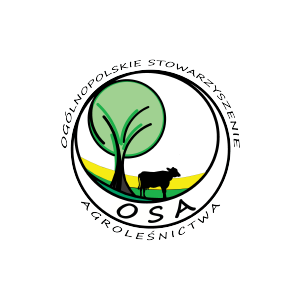 Polish Agroforestry Association (OSA) based in Puławy is currently the main Polish unit engaged in agroforestry activities. People involved in OSA are the core of several research platforms (e.g. AFINET RAIN group; SustainFARM stakeholders platform). Established in 2015, OSA is gathering farmers from different parts of the country, agronomists, foresters and business sector. The association is organizing workshops for researchers and farmers and helps farmers to establish agroforestry systems. OSA is a member of Polish Network for Innovation in Agriculture and Rural Areas with which is collaborating including dissemination of agroforestry innovations and agroecological knowledge through national channels of social media. OSA is cooperating closely with Institute of Soil Science and Plant Cultivation – State Research Institute (IUNG-PIB) supervising by Ministry of Agriculture and Rural Development, Organic Agriculture Forum and Association of Cattle Producers in Małopolskie region (in the Carpathians) comprising silvopastoral farmers. The organization is an associated member of Polish EIP Operational Group “Agroforestry in the Zielava Valley”. Apart from that, the association cooperates with Agricultural Advisory Centre at Brwinów, a public agricultural extension service in terms of organizing workshops for farmers and advisors. Additionally, representatives of administrative districts, landscape park planting mid-field shelterbelts, and of several NGOs dealing with improving agricultural biodiversity (traditional orchards, mid-field trees, insects and birds protection) in Poland are involved in the network.
Polish Agroforestry Association (OSA) based in Puławy is currently the main Polish unit engaged in agroforestry activities. People involved in OSA are the core of several research platforms (e.g. AFINET RAIN group; SustainFARM stakeholders platform). Established in 2015, OSA is gathering farmers from different parts of the country, agronomists, foresters and business sector. The association is organizing workshops for researchers and farmers and helps farmers to establish agroforestry systems. OSA is a member of Polish Network for Innovation in Agriculture and Rural Areas with which is collaborating including dissemination of agroforestry innovations and agroecological knowledge through national channels of social media. OSA is cooperating closely with Institute of Soil Science and Plant Cultivation – State Research Institute (IUNG-PIB) supervising by Ministry of Agriculture and Rural Development, Organic Agriculture Forum and Association of Cattle Producers in Małopolskie region (in the Carpathians) comprising silvopastoral farmers. The organization is an associated member of Polish EIP Operational Group “Agroforestry in the Zielava Valley”. Apart from that, the association cooperates with Agricultural Advisory Centre at Brwinów, a public agricultural extension service in terms of organizing workshops for farmers and advisors. Additionally, representatives of administrative districts, landscape park planting mid-field shelterbelts, and of several NGOs dealing with improving agricultural biodiversity (traditional orchards, mid-field trees, insects and birds protection) in Poland are involved in the network.
Role in the project: T.6.4 lead
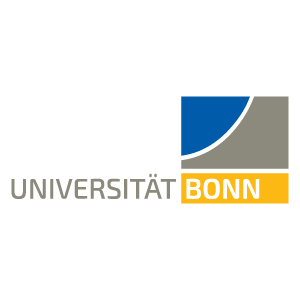 The University of Bonn is an international research university with a broad spectrum of subjects. As one of the most important universities in Germany, it has been awarded the title of University of Excellence. The Horticultural Sciences group (HortiBonn) in the Institute of Crop Science and Resource Conservation (INRES), specializes on temperate fruit orchards, climate change, decision analysis and agroforestry.
The University of Bonn is an international research university with a broad spectrum of subjects. As one of the most important universities in Germany, it has been awarded the title of University of Excellence. The Horticultural Sciences group (HortiBonn) in the Institute of Crop Science and Resource Conservation (INRES), specializes on temperate fruit orchards, climate change, decision analysis and agroforestry.
Within work package 6 of the project, UBO will contribute significantly to the development of comprehensive impact models for the implementation of agroforestry. These models will be used to project agroforestry outcomes and to simulate the impacts of innovations and policy measures.
Role in the project: WP6, and T.4.4, T.6.1, 6.2, 6.3 lead
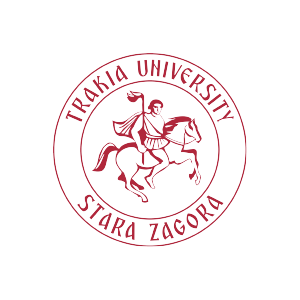 Trakia University – Stara Zagora is an autonomous state institution. It was established in 1995. The University provides high quality education for professional careers in the field of human and veterinary medicine, agriculture, ecology and environmental protection, engineering and technology, pedagogy, and economics. Over 8,500 students from Bulgaria and the world are educated by nearly 600 highly qualified lecturers, and by guest lectures, in 72 bachelor’s and master’s programs. A course in agroforestry is taught to the students of the Faculty of Agriculture.
Trakia University – Stara Zagora is an autonomous state institution. It was established in 1995. The University provides high quality education for professional careers in the field of human and veterinary medicine, agriculture, ecology and environmental protection, engineering and technology, pedagogy, and economics. Over 8,500 students from Bulgaria and the world are educated by nearly 600 highly qualified lecturers, and by guest lectures, in 72 bachelor’s and master’s programs. A course in agroforestry is taught to the students of the Faculty of Agriculture.
Role in the project: Involved in T.2.2., 3.1, 3.2, 4.2
 Europroject is а consulting compаny supporting technological and methodological innovation within all organisations active in R&D (SMEs, industries, research centres, NGOs, universities and public entities). EP hаs become а visible аnd recognized innovаtion support partner in South Eаstern Europe. The company provides support for project setting up and management, expertise and trainings in dissemination and exploitation, IPR, business planning and innovation management, all of which are crucial cornerstones of cutting edge EU projects. Its web development and graphic design team аre experts in the design аnd development of complex website and platforms designed in accordance with EU and international standards, including web accessibility.
Europroject is а consulting compаny supporting technological and methodological innovation within all organisations active in R&D (SMEs, industries, research centres, NGOs, universities and public entities). EP hаs become а visible аnd recognized innovаtion support partner in South Eаstern Europe. The company provides support for project setting up and management, expertise and trainings in dissemination and exploitation, IPR, business planning and innovation management, all of which are crucial cornerstones of cutting edge EU projects. Its web development and graphic design team аre experts in the design аnd development of complex website and platforms designed in accordance with EU and international standards, including web accessibility.
Philipps-University of Marburg (UMR) is the oldest university in the state of Hesse, Germany. UMR is a classical university with 21 departments including natural sciences, social sciences, cultural studies, arts, economics, law and medicine. The university has roughly 25,000 students and 4,500 employees. Contributions to the REFOREST project are managed by the Research Group on Regional studies of the department of Geography (FB19). The Research Group on Regional Studies has a comprehensive track record in qualitative research in agri-food networks and global value chains. Regional focus areas of recent studies included central Germany, Romania, Turkey, Vietnam and India. The research group also has experience in coordinating and participating in various EU and German government-funded projects including the Interreg-projects ECCO – Creating Energy Community Cooperatives and CConnects, the Horizon 2020 project SustainFARM, as well as the BLE-project Foodlevers.
Role in the project: WP1 and T. 2.3, 3.1 lead
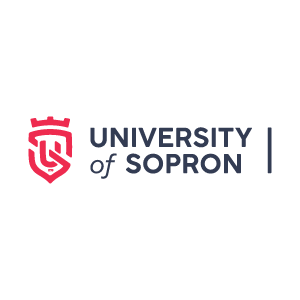 The University of Sopron is a nationally and regionally important higher education institution with four faculties and is the intellectual, educational and research center of the Western Hungarian region. Education at the university goes back to centuries-old traditions.
The University of Sopron is a nationally and regionally important higher education institution with four faculties and is the intellectual, educational and research center of the Western Hungarian region. Education at the university goes back to centuries-old traditions.
In terms of its spirit, the University of Sopron is a “green university”, where sustainability is at the center not only in education and training, but also in everyday life at the university. According to its mission, University of Sopron is a constantly renewing, value-giving and standard-setting, university knowledge center in Central Europe.
Role in the project: Actively involved in WP2, WP5 and T. 1.2, 1.4, 1.5, 3.1, 3.2, 3.3, 3.4, 3.5, 4.4, 4.5
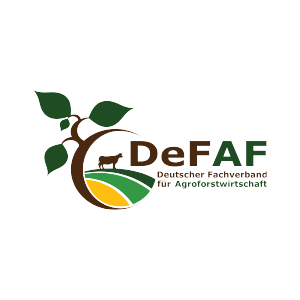 DeFAF is committed to all concerns regarding the establishment, management, dissemination and promotion of agroforestry systems. Its aim is to integrate all forms of agroforestry into agricultural practice as an essential part of agricultural management. According to its understanding, agroforestry is an agricultural land management system in which agricultural or horticultural crops or grassland and/or livestock are cultivated or kept and used together with woody plants (trees & shrubs) on the same land.
DeFAF is committed to all concerns regarding the establishment, management, dissemination and promotion of agroforestry systems. Its aim is to integrate all forms of agroforestry into agricultural practice as an essential part of agricultural management. According to its understanding, agroforestry is an agricultural land management system in which agricultural or horticultural crops or grassland and/or livestock are cultivated or kept and used together with woody plants (trees & shrubs) on the same land.
Founded on June 25, 2019 as a registered NGO, DeFAF currently has >400 members. Together with the board and the advisory council, its grass-root ambition relies largely on voluntary contributions of its members, coordinated and supported by seven members of staff. The DeFAF office resides in Cottbus, Brandenburg.
DeFAF’s main fields of action are the provisioning of information on agroforestry, preliminary advisory services, networking activities between practitioners, the sciences and politics, including policy related research.
Role in the project: Actively involved in T.2.1, 2.2, 2.3, 3.2, 3.5, 5.2, 6.1, 6.2, 6.3
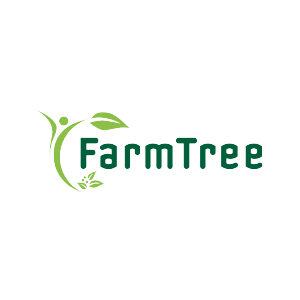 FarmTree BV that is based in Wageningen, The Netherlands has developed the FarmTree® Tool projecting the performance of agro- systems. The tool generates scenarios’ projections in graphs and time series for a variety of economic, social and environmental indicators. FarmTree Tool is available online so users can design and analyse the performance of the agro-plots themselves. In the Reforest project FarmTree is one of the modelling tools with a specific task to quantify and project performance of existing Agroforestry systems. FarmTree will define each species growing in the selected agroforestry systems, using field data and will generate performance projections of these systems. Projections come out in variety of indicators e.g. sequestered carbon, economic costs and benefits, biodiversity levels.
FarmTree BV that is based in Wageningen, The Netherlands has developed the FarmTree® Tool projecting the performance of agro- systems. The tool generates scenarios’ projections in graphs and time series for a variety of economic, social and environmental indicators. FarmTree Tool is available online so users can design and analyse the performance of the agro-plots themselves. In the Reforest project FarmTree is one of the modelling tools with a specific task to quantify and project performance of existing Agroforestry systems. FarmTree will define each species growing in the selected agroforestry systems, using field data and will generate performance projections of these systems. Projections come out in variety of indicators e.g. sequestered carbon, economic costs and benefits, biodiversity levels.
Role in the project: Actively involved in T.2.2, 2.3, 3.6
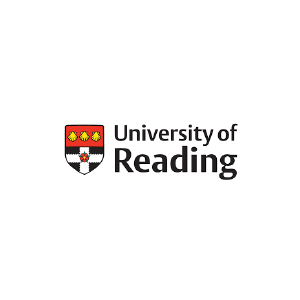 The School of Agriculture, Policy and Development at the University of Reading is a world leader in terms of both teaching and research, maintaining a reputation developed since the 1800’s. Their focus is to provide the individuals with knowledge to address the major challenges and opportunities in our sector for the 21st century. The School of Agriculture, Policy and Development address food production, sustainability of agro-ecosystems, food security, adaptation and mitigation to climate change, food chains and health, animal welfare and behaviour, poverty alleviation, international development, and consumer behaviour and choice. In World Rankings UREAD is in the top 150 for Life Sciences and 12th for Agriculture and Forestry in 2021. Their vision is to maintain and enhance our reputation as a world leading Centre of Excellence in research and teaching applied to agriculture, food, and environment. Their Mission is to develop, extend and synthesis knowledge across disciplines within the School via excellent research, teaching, impact and communication.
The School of Agriculture, Policy and Development at the University of Reading is a world leader in terms of both teaching and research, maintaining a reputation developed since the 1800’s. Their focus is to provide the individuals with knowledge to address the major challenges and opportunities in our sector for the 21st century. The School of Agriculture, Policy and Development address food production, sustainability of agro-ecosystems, food security, adaptation and mitigation to climate change, food chains and health, animal welfare and behaviour, poverty alleviation, international development, and consumer behaviour and choice. In World Rankings UREAD is in the top 150 for Life Sciences and 12th for Agriculture and Forestry in 2021. Their vision is to maintain and enhance our reputation as a world leading Centre of Excellence in research and teaching applied to agriculture, food, and environment. Their Mission is to develop, extend and synthesis knowledge across disciplines within the School via excellent research, teaching, impact and communication.
Role in the project: Task 6.5 lead and actively involved in T1.5, 2.1, 3.2, 3.3, 3.4, 3.6, 5.2, 5.3, and 5.4
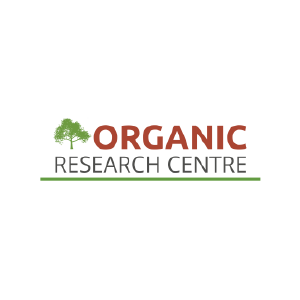 The Organic Research Center is an independent research organisation which for 40 years has been working collaboratively across Britain and Europe to support the uptake and success of organic and agroecological farming approaches. Agroforestry has been a key research focus for much of this time and our research has been helping to drive a rapid rise in interest in this land management approach in the UK. It has partnered in Horizon 2020 projects such as AGFORWARD, AFINET and AGROMIX. In REFOREST ORC is coordinating the formation of living laboratories in the partner countries, as well developing, testing and applying innovative AI based methods of modelling the biodiversity and carbon benefits of adopting agroforestry. In the policy work package, as a UK partner we will be seeking to make the tools developed by REFOREST applicable within the country’s new system of agricultural support.
The Organic Research Center is an independent research organisation which for 40 years has been working collaboratively across Britain and Europe to support the uptake and success of organic and agroecological farming approaches. Agroforestry has been a key research focus for much of this time and our research has been helping to drive a rapid rise in interest in this land management approach in the UK. It has partnered in Horizon 2020 projects such as AGFORWARD, AFINET and AGROMIX. In REFOREST ORC is coordinating the formation of living laboratories in the partner countries, as well developing, testing and applying innovative AI based methods of modelling the biodiversity and carbon benefits of adopting agroforestry. In the policy work package, as a UK partner we will be seeking to make the tools developed by REFOREST applicable within the country’s new system of agricultural support.
Role in the project: WP2 and T.2.1, 2.2, 2.4, 4.1, 4.3 lead




